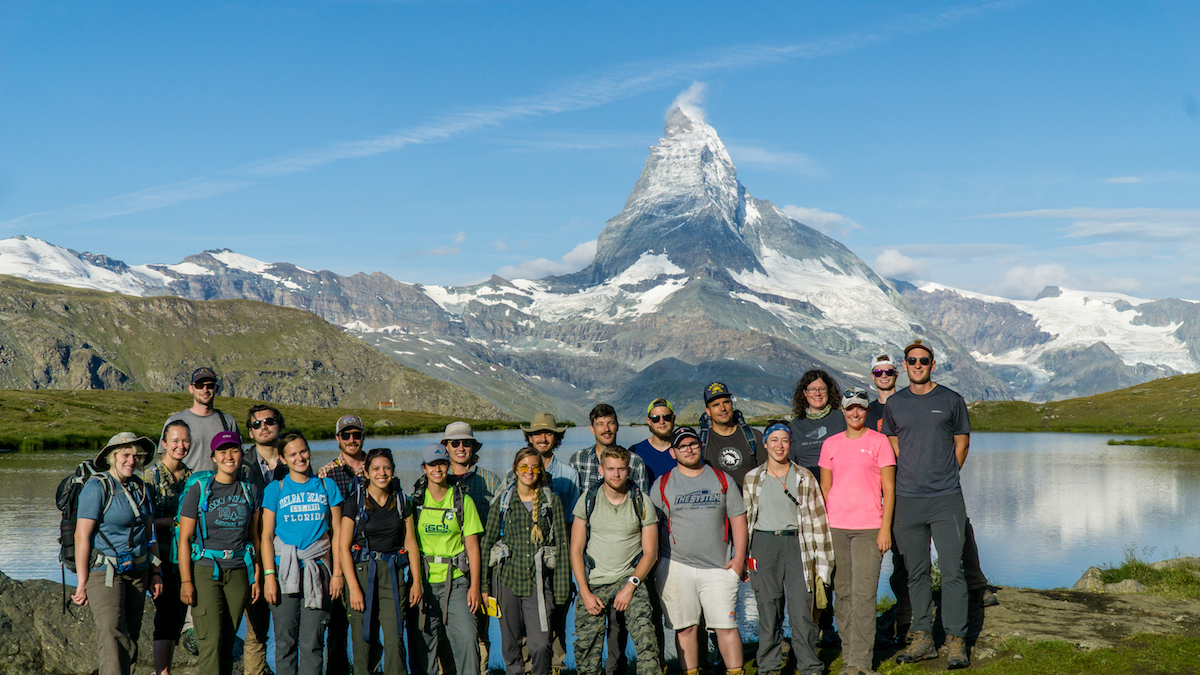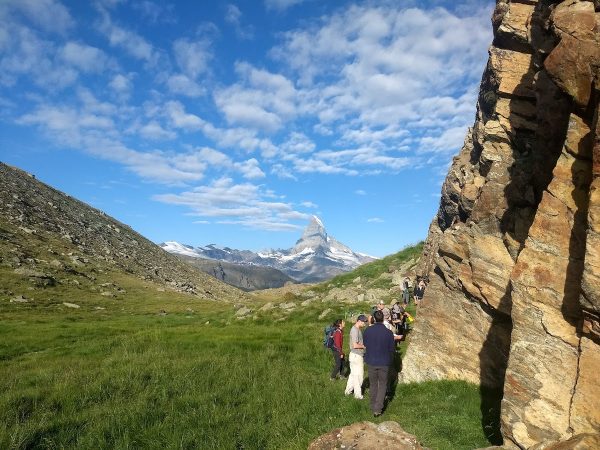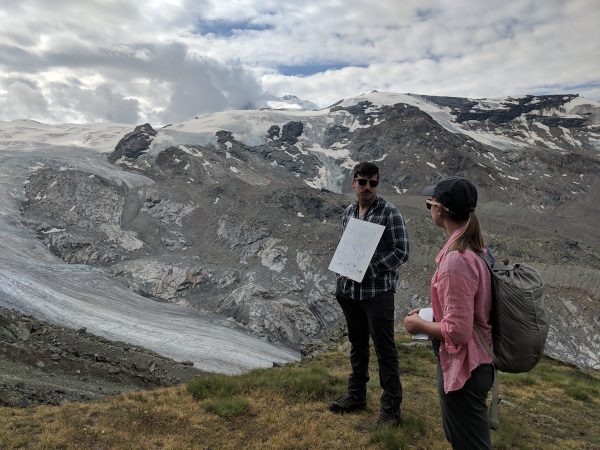
Stepping outside to have class in view of the Matterhorn was a geology major’s dream come true for 20 Iowa State students this summer.
Jacqueline Reber, assistant professor of geological and atmospheric sciences, led the geology field trip course to the Swiss Alps in August.
“Geology is one of these subjects that’s really hard to learn just indoors because it’s very applied,” she said.
Which is why each year the Department of Geological and Atmospheric Sciences holds a field trip course. The faculty take turns leading it, with the destination determined by the faculty member’s background and research area. This was the first time in 20 years that the field trip was international.
“Because I am from Switzerland, it was a logical step to try to organize a trip that goes to Switzerland,” Reber said. “Furthermore, the Alps are kind of an iconic mountain range to look at as a geologist.”
Before the trip, the students, who ranged from freshmen undergraduates to doctoral students, studied the formation of the Alps from the formation of the Tethys Ocean to the collision of the African and European plates. In Switzerland, they observed the structural formations that form the evidence of this.

Gabrielle Ledesma (’20 geology) went on the trip excited to be able to study abroad while using her major.
“It was breathtaking,” she said. “I’m sure everybody on the trip fell in love again with what we are learning and with geology in general.”
The department helps fund the field trip course because of how helpful the experience is for studying structures in geology that are unavailable in Iowa. In addition to the rotating field trip, the Carl F. Vondra Geology Field Station in Wyoming provides students with more exposure to different geological landscapes.
Shae McLafferty (’20 geology) said the field trips provided by the department and, most importantly, the excellent professors more than make up for any lack of geologic structural diversity in Iowa.
“I actually feel lucky being in a department that’s very good at what they do, so I don’t feel as if being in Iowa without strictly pristine geologic formations is a bad thing,” she said. “Field trips are good generally for field experience, to see things that you learn about abstractly in physical form, see how they interact with rocks around it, not necessarily just the structure you’re talking about.”
The class trip began in Zurich, then headed south to the Rhône Valley. They stopped to see the famous Matterhorn, a mountain which contains rock deposited in Africa now on the European continent. They explored the Alps of Northern Italy, then circled back to Zurich.
Beyond the mountainous structures, students were excited to see glaciers and glacial structures, including hiking on a glacier and drinking from it.

“One of the things that we talk about a lot in geology is just glaciers in general and I had never seen a glacier before,” Ledesma said. “When we went to Switzerland and started hiking, they were everywhere.”
Being immersed in geology constantly through the landscape as well as being around fellow geologists and geology students helped many of the students be even more excited about their field of study. The range of experience and education levels also added to the trip. At each location, the students would break up into groups with varying backgrounds within each group.
Tessa Dall (’18 materials engineering) had a unique perspective as an engineering student on the trip. She plans to eventually apply her studies and experiences to teach middle or high school and takes geology courses to add to her science background.
“Materials engineering is similar to geology but instead of looking at atoms or different kinds of materials you’re looking at a rock — you can see where the max stress was, you can see where the max shear was,” she said. “I think it will be really beneficial for me when I go into teaching that I have the experience in the field for geology and I can relate that to other technical fields in science.”
For Dakota Conn, a graduate student, the trip was a chance to learn, teach and gain field experience, an all-around resume builder.
“I want to be an exploration geologist, working for a mining company. That has the possibility of sending me to places anywhere in the world,” he said. “Being able to go to other countries and other states and see different rocks and formations will help me become a better geologist. ‘The best geologist has seen the most rocks,’ is what they say.”